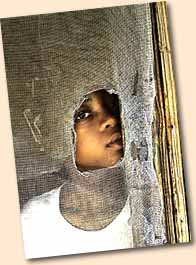| Teaching and living diversity |
| Learning about diversity |
When I think of families from diverse backgrounds, this interpretation for me is more than just people from different places. My families are diverse in so many ways, I have the very young mothers who have been raised by very young mothers, and I have young and older grandmothers that have taken the responsibility of raising young children, I have fathers raising children alone, older sibling raising the younger brothers and sisters in a household with substance abuse parents.
My hope for my children and families is that they find the services needed to help them acclimate into a warm, caring, culturally tolerant, healthy environment. My hope is that the world becomes kinder and welcomes diversity with an open heart, mind, and spirit.
My one goal that I would like to set for the early childhood field in relation to issues of diversity, equity, and social justice, is to have all of the early childhood professionals trained in diversity, equity, and social justice. Our children live the greater part of the day with early childhood professionals that may not have a clue about diversity. With such important issues affecting our children’s emotional, cognitive, and social development, it is paramount that our administrators train their early childhood professionals on diversity, equity and social justice.
Training is the one goal that I believe could make a difference to our children and their families. When early childhood professionals truly understand cultural diversity, the equity and social justice awareness can be practiced in our classroom. This new awareness and understanding will trickle down, up, and out to a new army of culturally diverse educated savvy communities.
I will have to repeat myself by saying this “I miss the banter of the open discussion of the brick and mortar classroom environment however, that is not physically affordable for me at this time. I thank you all for the discussion board and the interaction that you have brought to it. I truly enjoyed and appreciated your comments, and feedback, your shared information, and part of your own personal life. Thank you!!!

